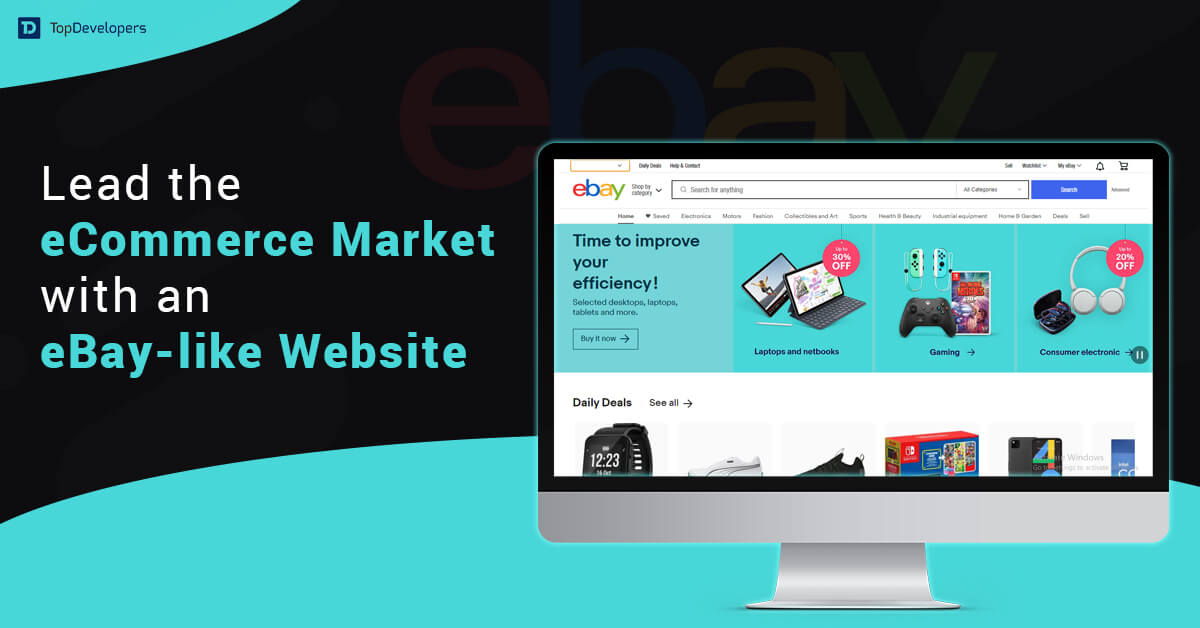
Businesses must have an online presence, whether it is a mobile website vs mobile app. As more people access the internet via smartphones and tablets, you are losing out on a sizable potential market if you lack an online presence on these gadgets.
A mobile app or website can help you to:
- enlarge your audience
- enhance the user experience
- boost revenue and client loyalty by increasing customer involvement
Some stunning stats and figures:
- According to recent research done by Statista, by the end of next year, at least 187.1 million people will have made a purchase via smartphone.
- In 2022, an average user spent 3 hours and 47 minutes on a mobile app, whereas the amount of time spent on a website declined to 23 minutes.
In the era of mobile devices such as smartphones, tablets, and digital watches, businesses must have a strong presence in them. On the other hand, there are various options to connect with mobile audiences, making it difficult for entrepreneurs to decide on the right platform. It has been a long debate on mobile websites vs. mobile apps, and if you are not been living in the cave for the last few years, you must be well aware of the difference between web and mobile applications.
In this blog post, we will list the features of mobile apps and mobile websites to help brands find the right option for their business.
Table of Contents
- What is a Mobile App?
- What is a Mobile Website?
- The Difference Between Web Applications and Mobile Applications
- Which one is Better for Your Business: Mobile Website or Mobile App?
- When do you Need a Mobile Website?
- When do you Need a Mobile App?
- When is a Mobile App a Better Choice than a Mobile Website?
- Comparison Summary Of Mobile App vs. Mobile Website
- Which one should you Opt for A Mobile App or Mobile Website?
What is a Mobile App?
A mobile app is software designed to run on mobile devices. One can download and install a mobile application from the Google Play Store or Apple App Store. They allow users access to a wide range of services, including social media, gaming, online shopping, productivity tools, and news, to stay connected and informed in the digital world.
benefits of mobile app development A mobile app can have various advantages, from easy accessibility to enhanced user experience. Here are a few advantages of a mobile app;
- Increased convenience.
- Customized content and recommendations.
- Push notifications for timely updates.
- Integration with a smartphone, i.e., GPS, camera, and location.
- Offline access to essential features.
- Promote in-app purchases.
- Improve customer loyalty
- Provide unique services
- Build a stronger brand
What is a Mobile Website?
A mobile website is a modified version of a website for mobile devices. It has a responsive layout optimized for smaller screens and touch-based interactions. Mobile websites load faster and provide a better user experience on mobile devices. They offer content and services tailored to mobile device users’ needs.
Benefits of Mobile Website:
The mobile website brings many advantages to users as well as business owners. Such as;
- Improved accessibility on many mobile devices
- lower expenses for development and maintenance
- increased visibility in search results
- enhanced user statistics and tracking tools
- more audience engagement potential and reach.
The Difference Between Web Applications and Mobile Applications
Mobile App and Website focus on distributing information and services to all users across multiple devices. There is no doubt that there are various differences between apps and websites, but both aim to deliver seamless experiences to their users. As an entrepreneur, it is essential to understand their differences to decide the right option for the brand.
One of the prominent takeaways in the battle between mobile apps vs websites is that, In most cases, mobile websites aim to deliver content, and they are not as interactive as mobile apps.
Another key difference between mobile and web applications is the financial aspect. Mobile websites can be built at an affordable price compared to mobile apps.
One of the best advantages of mobile websites is that users don’t have to download them, and they are also easily compatible across multiple platforms. It also has a greater reach when compared to smartphone apps for mobile devices.
Mobile applications often perform better than mobile web pages regarding speed and responsiveness. Additionally, they have access to the gadget’s hardware, enabling more sophisticated features and capabilities.
When the concern is about mobile web applications and mobile application differences, mobile apps offer an edge regarding user engagement and retention. Users may receive push notifications from them, which keeps them informed and interested even when the app isn’t being used. Personalized experiences and content may be offered by apps depending on user choices and behavior.
Which one is Better for Your Business: Mobile Website or Mobile App?
Here are some of the key factors that can help businesses in selecting the right options between Mobile websites and mobile app
User Experience
As mentioned above, mobile apps offer a better user experience and interface when compared to a website for mobile devices. They also offer personalized recommendations, which help brands in enhancing customer engagement.
Features and Functionalities
If you want your customers to be notified about your brand through push notifications or offer offline access, then mobile apps are better than mobile websites.
Improved Reach
Mobile websites are accessible across all platforms; therefore, they can be ideal for businesses that want to target a large audience pool.
Time and Costs
When concerned about faster development, a mobile website can be built quickly. Various website-building platforms like WordPress, Shopify, and Wix can help brands build websites within a couple of hours. One can also fetch help from various custom web development companies available online who can help them in developing a website according to their personalized requirements. Mobile apps need complex programming, which needs a longer period of time to hit the market.
Customer Engagement
Mobile apps can send push notifications to the audience, which can help brands keep their audience engaged with their services.
Ultimately, the decision to develop a mobile website or a mobile app depends on the business objectives and target audience. There are also various factors like functionalities, budget, and goals that one has to consider to finalize the option.
SEO (Search Engine Optimization)
Mobile websites are quite SEO-friendly when compared to mobile apps. One of the prominent advantages of having a mobile website is it can be optimized for search engines such as Google, Bing to get better exposure and expand its reach. At the same time, there are limitations to SEO with mobile apps, as ASO or App Store Optimization is the only thing one can do to increase the reach of a smartphone application.
Maintenance
Mobile websites often require less upkeep since server-side updates and modifications may be done without forcing users to upgrade the app. Mobile apps require ongoing maintenance since updates and bug fixes must be sent separately to each platform, which can take more time and money.
Offline Access
Having offline access where internet connection is not good is beneficial for businesses and users. This feature can be implemented in mobile apps while developing. Mobile websites however require the internet to be accessed.
When do you Need a Mobile Website?
A mobile website can help
- Businesses reach more customers
- Improve user experience, and
- Increase lead conversions
Additionally, it also boosts your SEO ranking which results in more Google favors because the giant loves websites that are mobile-friendly. If you want to stay competitive and relevant in the digital age, you must opt for a mobile website for your business.
When do you Need a Mobile App?
When more than half of the world is on mobile devices, a business mobile app means
- Better reaching more customers
- Enhancing your brand awareness, and
- Improving your customer loyalty
With a customized mobile app, you can offer all your products or services to your esteemed clients anytime, anywhere. With certain user-friendly features, you can offer a personalized and convenient experience for your users. A mobile app tailored to your business enables you to gather crucial data and feedback to optimize your marketing strategies.
In today’s competitive market, a mobile app is not a luxury, but a necessity for any business success.
When is a Mobile App a Better Choice than a Mobile Website?
Mobile apps offer many advantages as compared to mobile websites for businesses. Those who want to reach and engage their customers would prefer mobile apps. Mobile apps are quicker, more convenient, more tailored, and more engaging than mobile websites. Business apps for mobile devices are designed and developed to use device features such as cameras, GPS, push notifications, and offline modes to enhance the user experience (UX) and customer loyalty. Mobile apps enable businesses to increase their profits by different monetization models such as in-app purchases, subscriptions, and advertisements. Hence, mobile apps are a better choice than mobile websites for many businesses today.
Here are the benefits of having mobile apps at a glance:
- Better reach for a wider audience or customer
- Increased customer base
- Customized services, products, and offers
- Handy, access to business products and services on the go
- Easy to maintain, handle, and manage
- More trendy and in demand
- More use of contemporary technologies such as ML, IoT, AI, etc.
- Attractive design for more engagement and interactions
- Quick business IT solutions for companies
- Quick responses to customer queries and concerns
Comparison Summary Of Mobile App vs. Mobile Website
Here is the table for the pros and cons of a mobile website and a mobile app.
| Particulars | Mobile Apps | Responsive/Mobile Websites |
|---|---|---|
| Reach | Accessible on wearables, tablets, mobile phones, and TVs. | Accessible on wearables, tablets, mobile phones, TVs, and even desktops and workstations of all kinds. |
| Compatibility | Available mobile app development includes native apps and cross-platform plus hybrid apps for Android, iOS, and others. | Works on all workstations, mobile devices, and other handheld gadgets. |
| Working Offline | Works online and offline both equally and smoothly. | Limits the functionalities and features. |
| Convenience | Highly user-friendly. Apps are customized and tailored according to business objectives and customer demands. | Because of limitations, mobile websites or responsive websites may not offer the best UX as compared to mobile apps. |
| Ongoing Maintenance | Requires owners to pay some extra cost and time for regular updates and maintenance. | Update and maintenance, as compared to mobile apps is easier and less expensive. |
| Handiness | Highly handy! Easy to access any information and data on the go. | Not as smooth as mobile apps. Need to work extra to make web apps handy and aligned on all devices. |
Which one should you Opt for A Mobile App or Mobile Website?
By now, it is clear that mobile applications offer a wide range of benefits compared to websites. One of the best advantages of building a mobile app is it offers an immersive experience to the users. Some apps also include offline capabilities that let users access particular features and information without an internet connection.
Mobile applications allow companies to expand their client base and foster stronger brand loyalty. Apps promote regular interaction by maintaining a consistent presence on consumers’ devices and acting as continual brand reminders. Apps may use features like app purchases, subscriptions, and loyalty schemes to generate income and encourage user loyalty. Businesses can also collect data and insights with the help of the app, which can help them analyze their customer behavior and KPIs.
Finally, it is also essential for brands to hire one of the best mobile app development firms to help them create an interactive and user-friendly smartphone application.
FAQs About Mobile Website vs. Mobile App
What is the difference between a mobile app and a mobile website?
The primary difference between a mobile app and a mobile website is that an app is independent software that must be downloaded and installed on a mobile device, whereas a mobile website may be viewed directly through a web browser and does not need to be installed.
Why is a mobile app better than a mobile website?
Mobile apps are frequently seen as superior to mobile websites because they provide a more customized and immersive user experience, utilizing offline functionality, device-specific features, and personalized alerts to increase engagement and pleasure.
Why is a mobile website better than a mobile app?
When broad accessibility is crucial, a mobile website may occasionally outperform mobile app. Mobile websites don’t require separate platform-specific programming because they work on any device with a web browser.
 Avantika Shergil
| Jul 17, 2023
Avantika Shergil
| Jul 17, 2023
Avantika Shergil is a technology enthusiast and thought leader with deep expertise in software development and web technologies. With over 8 years of experience analyzing and evaluating cutting-edge digital solutions, Avantika has a knack for demystifying complex tech trends. Her insights into modern programming frameworks, system architecture, and web innovation have empowered businesses to make informed decisions in the ever-evolving tech landscape. Avantika is passionate about bridging the gap between technology and business strategy, helping businesses build customized software and website, and understand about different tools to leverage effectively for their ventures. Explore her work for a unique perspective on the future of digital innovation.





